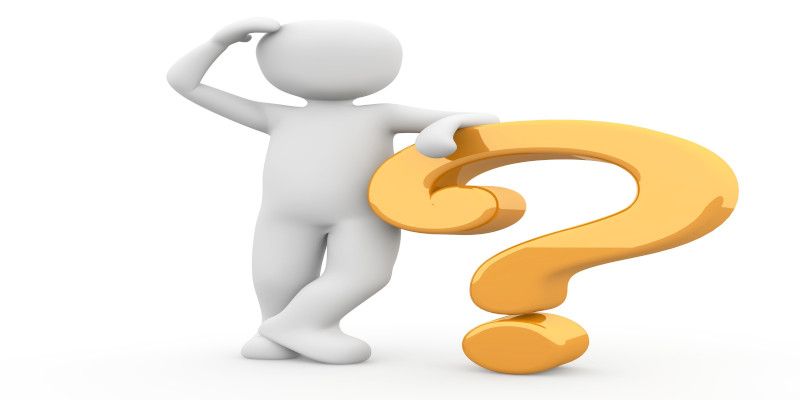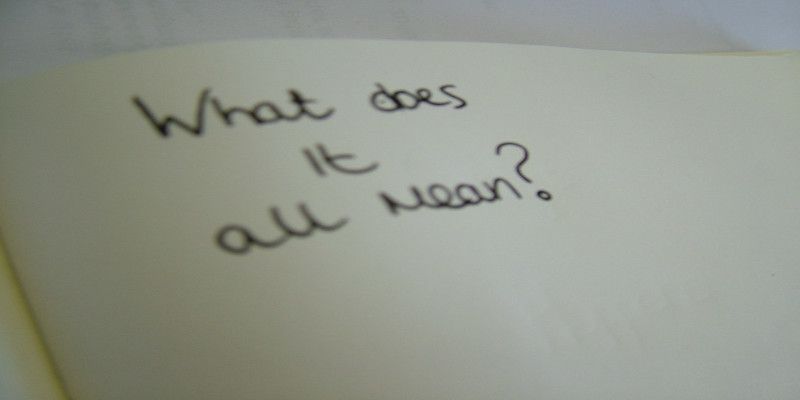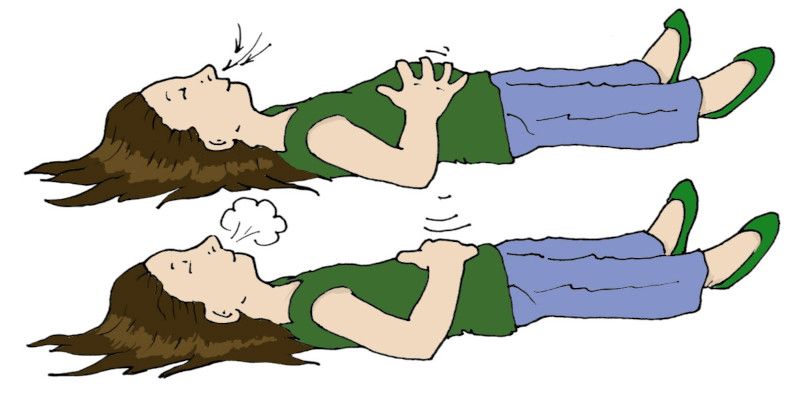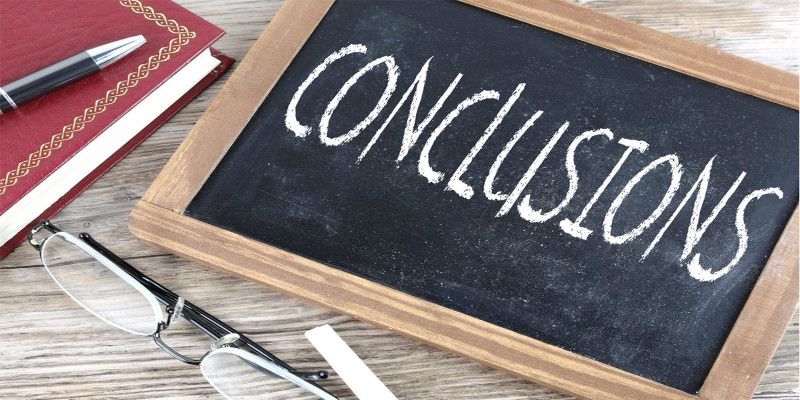Table of Contents
ToggleMemory plays an active role in learning. And while most people associate remembering stuff with the brain/mind, it is much more complicated and fascinating than that.
It encompasses many curious intellectual and cognitive processes. But first, let me explain what memory is and what its role is in learning.
What does memory mean?
Memory can be defined as the intellectual or logical cognitive process that defines the temporary property of our mental organization.
It involves three major processes, which are encoding, storing, retaining, and finally, recalling information about our past experiences to use it to our advantage in the present and future.
However, our recollection is not a flawless system. And it is possible to misremember and even to forget things that happened in the past. It can also happen that previous experiences are not appropriately encoded in our memory in the first place, which will lead to errors in our thinking.
The role of memory in learning

The role of memory in learning is that it allows us to encode, store, and retrieve data at a later date.
Consequently, the effectiveness of learning depends on how well one can encode all the available information.
It’s an active and selective process that relies on several different components.
The following three factors decide how efficient or how hard the encoding process will be:
- Content factors
This means what kind of matter needs to be encoded into our memory.
- Environmental factors
Environmental factors are associated with the terms under which the encoding process takes place.
- Subjective factors
Subjective factors are components related to the variables that happen when the encoding process happens.
Content factors
- The volume of the information

The more information that needs to be stored, the more difficult the encoding process will be, and vice versa.
- The degree of familiarity
When the information is already known to us, and we understand the big picture of the data presented to us, it becomes much easier to encode and thus, store in our long-term memory.
- The degree of organization of the material
If the information is well organized, and if it is possible to group the information in abstract categories for ourselves, then it becomes easier to memorize.
- The area where the information is presented to us in the content
It does indeed matter if the data is submitted to us at the beginning, in the middle, or at the end of the content.
The middle part is the hardest to remember, and both the beginning and the end of the content are the easiest to memorize.
- The nature of the material
Some information is easier to remember for some people and harder for other individuals, depending on the person’s strengths and weaknesses.
For example, someone with a talent for language will probably find memorizing words from a new language much easier than remembering chemical elements.
Environmental factors
Environmental factors can also be influential in the encoding process. Thus, this also impacts our long-term memory.
External factors such as noise levels, temperature, humidity, and emotional states are just a couple of environmental factors that can influence the encoding process.
Some environmental factors can be beneficial to the memorizing process, while others can negatively impact it.
For example, studying in a quiet place with few distractions is beneficial, while studying in a noisy place with a lot of external distractions is detrimental to encoding and storing data.
Subjective factors
Subjective factors include components such as an individual’s health, fatigue, motivation to succeed, interests, and potential illnesses.
Especially motivation, one’s attitude, and interests are of vital importance to be as efficient as possible in the encoding process.
Importance of memory in learning

From an evolutionary psychology perspective, its purpose and intention is to keep us alive. Without our working memory, short-term and long-term memory, this would not be possible.
Due to our memory, even our ancient, more primitive ancestors learned many things to survive, such as:
- What to eat and gather
- Which plants were edible and which would make them sick
- What animals to hunt
- Which animals were dangerous and should be avoided
- Where their home was located
- Who they could trust and who was not trustworthy
What we can most certainly conclude is that memory plays a central role in everyone’s life. It allows us to reflect on the past, which we can then utilize to reuse our experiences. It can also aid us to guarantee continuity between what was in the past, and what is going to be in the future. Reflecting also allows us to see what mistakes we made to avoid making the same errors.
Memory is an active, although subjective, well-informed, often rational reflection procedure of our past experiences. It should be noted though that our memory is not fail-proof, and that even something as intelligent as our mind can make mistakes.
Memory plays an active role in learning, but should not be mistaken for learning. There are 3 main cognitive processes involved in human memory. Those are:
- Encoding
Encoding stands for changing information into a sort that can be stored in the memory.
- Storing
Storing means holding the previously encoded information in our memory for future use.
- Retrieving
Retrieving stands for re-accessing information from the past that has previously been encoded and stored for future use.
What we classify as a single memory are actually three sub-memories that can be distinguished from each other:
- Sensory memory
- Working memory/short-term memory
- Long-term memory

We won’t go into the details, since we’ve already explained the memory systems in depth above.
But to summarize, the sensory memory gives a very brief sensory stimuli, whereas the working memory works very shortly to retain the information to manipulate it. The short-term memory in turn stores that retained information for a short while before it gets lost again, or stored in our long-term memory.
Both memories can be seen as filters that protect our brains from information overload. It does this by organizing the information that regularly gets used and that is vital for our survival into the long-term memory, and by eliminating data that doesn’t get often used or that isn’t important to ensure our survival.
Information that gets used regularly is more likely to get stored in long-term memory. This is what we call the reinforcement process. That’s also why studying regularly at regular intervals is so effective for imprinting all that info efficiently.
This reinforcement of the initial acquirement of all that info stabilizes the memory trace and is what we call the consolidation process.
Ultimately, the information we are aware of is stored in our long-term memory, where it can be stored for a long time for future usage.
Frequently Asked Questions (FAQ)
How are memories formed in the brain?
The formation of memories in the brain happens in 3 steps:
- Encoding
- Storing
- Retrieval


To form new memories, we must first change the information in a form that we can use to store that new information. This process is what we call encoding in learning.
Encoding stands for changing information in a sort that can be stored in the memory. Encoding is not only possible in the human brain, but with computing and programming as well.
When our new experiences and, thus, information are encoded properly, they can and must then be stored in our memory for usage at a later date. The encoded information is only useful if it gets stored, otherwise, it gets lost.
A lot of the information that gets stored in our memory is done unconsciously, while some information like for example studying for an examination gets stored consciously, which means we are aware of that fact. But, the retrieval process of this unconscious information when we need to use the unconsciously stored information brings it back inside our conscious awareness.
So to summarize how memories get formed in the brain, information gets sorted in a useable form which we call encoding, it then gets stored in the memory for future usage. When we need to use that information again, it gets retrieved by the working memory out of our long-term memory.
How long do our memories last?


How long our memories last depends on the nature of the memory.
How long do sensory memories last?
Some very short sensory memories only last for a couple of seconds. They allow us to take in fleeting sensory information about the world, which gives us data about what’s happening and how we should react appropriately.
How long do short-term memories last?
Then we have short-term memories. These are usually a little longer, lasting for up to 20–30 seconds. These memories are typically about the information about the subject we are thinking about.
Some retentions are very brief, just seconds long, and allow us to take in sensory information about the world around us.
How long do long-term memories last?
Lastly, we have the long-term memories. And those can last much longer than sensory memories and short-term memories do. They can last for many years, up to multiple decades even.
Most of our long-term memories are subconscious, which means we are not aware of them. However, when we need them, we can draw them into our conscious awareness to use them.
What’s the use of memory in life?


The use of our memory is to keep us alive and to prevent us from making the same mistakes from the past, which would be detrimental to our overall life quality and survival chances.
When memories have been encoded and stored appropriately into our memory, they can be retrieved to use them.
How those retentions get retrieved depends on many factors, such as the retrieval cues present and the type of information one is trying to get.
Needless to say, this process is not always perfect. And that is if the information is even stored perfectly without biases and prejudice.
An example of a retrieval error is the tip-of-the-tongue phenomenon also known as lethologica.
It means that we feel that the answer to a question is lying right at the tip of our tongue, yet we can’t quite remember the answer, even though we know that we generally know that answer.
It seems that the answer gets blocked by a mental block. We often turn to a multitude of alternatives to fill that void.
How does memory organization occur?


Memory organization happens based on the semantic network model.
Information gets organized in our memory by associating certain triggers with the associated memories. Those mental triggers will then cause us to remember the connected retentions.
For example, it can be the case that a specific place triggers memories about related stuff that happened in that specific location someday in the past.
Walking around in your old school for a reunion might for example trigger thoughts about studying, taking examinations, and reminiscing about the good times you used to have with your school friends.
This means that organizing memories is influenced by both internal and external cues like our environment.
Multiple different types of memories
Richard Atkinson and Richard Shiffrin proposed the existence of multiple different types of memories in 1968.
Their theory separates three stages/types of memory.
- Sensory memory
- Working memory/short-term memory
- Long-term memory



Sensory Memory
The sensory memory is the first and earliest stage of our memory.
Information about the environment is stored for a very brief amount of time, lasting just about 3 seconds. Our sensory memory gives us visual, auditory, and tactile data about our surroundings.
This information passes so fast through the sensory memory that we’re often not consciously aware of the presented sensory stimuli. Once we have perceived this information for the short time it’s there, it then gets passed to the next stage in our memory, which is the short-term memory.
Working memory
Working memory has been linked to executive functioning, which is frequently affected in the earlier stages of Alzheimer’s disease. That’s why one of the symptoms of Alzheimer’s disease is problems with memory, specifically the working/short-term memory that is tasked with retrieving information to manipulate it.
Short-Term Memory


Short-term memory is also commonly called our active memory.
It compasses all the information that is currently under our conscious awareness.
That’s why it was previously called the conscious mind by Sigmund Freud, the famous Austrian neurologist and the founder of psychoanalysis.
This information then gets lost or stored in our long-term memory. If it gets stored in our long-term memory, it’s there to stay for a long time.
Short-term memories last a little longer than our sensory memories, although not that much longer, with an average of 20–30 seconds.
Long-Term Memory
Long-term memory is where the information gets stored for days, weeks, years, and even decades if our brain stays healthy and the information is encoded well, and frequently rehearsed.
In Freudian psychology, our long-term memory would be called the preconscious and unconscious mind.
It acquired this name because most of the information stored here is largely outside our awareness, but can be retrieved under our consciousness by calling it into our working memory for manipulation.
What we can conclude is that multiple memory types exist and that they work together in order to create a useful, purposeful memory to encode, store, and use past experiences.
Can we lose memories?


Forgetting is a natural part of our memory. However, forgetting things can also be a sign of more serious medical concerns such as Alzheimer’s disease for example.
Back to the natural part of forgetting. How many times have we forgotten someone’s name or an important appointment? Most people recognize this situation all too well. But, There are a variety of reasons why we often forget information from the past. These reasons are:
- Failure to store data
- Memory interference
- Retrieval failure
- Motivated forgetting
Failure to store data
It is possible that information doesn’t get encoded properly. And as a result, that information isn’t stored in good order in our long-term memory. It is also possible for information to get lost from our memory.
in-memory interference
Retrieval failure
One of the most essential components that influences memory failure is time. The longer information doesn’t get used, the more likely it is that the info, or at least parts of it, get forgotten.
That’s why frequent, actively rehearsing information is so critical to encode that data properly and to stave off retrieval failure. This way, we’re much less likely to forget.
Motivated forgetting
It can also be the case that people are actively trying to forget certain information that they don’t want to remember for personal reasons. This is what we call motivated forgetting.
Being hurt and betrayed by a person you love might cause you to actively repress and try to forget it happened in the first place.
How to optimize our memory?
Some people have a better memory than others. That largely comes down to genetics, but practice and applying the right techniques can also help and teach you how to improve your memory. It can help you to encode and retrieve information better.
These are some techniques you can utilize to optimize memory:
Write it down


Writing down information helps to imprint it into our memory better.
Especially when you’re consciously aware and trying to understand what you’re writing down, as this forces you to think and understand the material.
Repeat often
Repeating information often helps to encode that information from our short-term memory into our long-term memory much better.
It’s typically better to learn more frequently for shorter durations than trying to study and remember large amounts of information in one long sitting. (Looking at you, students.)
This way, information will be preserved much longer and more accurately and will last over a very long period because it is properly encoded.
Tie meaning to it


When you attach meaning to the information you’re trying to preserve, in one way or another, things become easier to remember.
For example, remembering someone’s name can be easier when you associate it with another person with a similar or the same name.
Group information together
Grouping information together in subjective categories makes it easier to encode information and retrieve it over time.
For example, if you read banana, mouse, cat, orange, dog, kiwi, bird, pineapple, grapes, and donkey, then it might be hard to remember all of them.
However, grouping them by categorizing them under the categories of fruits and animals makes them much easier to remember.
That means that bananas, oranges, kiwis, pineapples, and grapes are grouped under the category of fruits, and mice, cats, dogs, and birds under the category of animals.
This way, information gets grouped, which is logical and makes sense to us. And we humans are constantly trying to divide everything into neat, practical categories, although we do so mostly unconsciously.
Exercise


Exercising might seem like a weird technique to improve your memory, but it makes a lot of logical sense.
You can’t think properly or optimally when you’re not physically healthy and active.
Both aerobic exercises and anaerobic exercises are important for optimal brain function.
Aerobic sports such as walking, cycling, and swimming for uninterrupted, longer periods are essential for the brain and memory to function properly. Aerobic exercising is of vital importance since we need to use our brains for a long amount of time during the day to make decisions and to think about things.
Anaerobic sports such as sprinting, weightlifting, and football are also indispensable since our brains need to function at a high pace for a short period sometimes. Think (no pun intended) about solving a hard problem, or solving an examination with a harsh time limit.
It comes down to this, our brain uses a lot of oxygen and energy. Thus, we need to make sure our mind/body is well oxidized. And exercise accomplishes that goal perfectly.
Not to mention that it helps to clear your mind and will aid you in winding down, which can also prevent brain fog, improving your memory down the line. Oh, did I mention that exercising is also a great natural antidepressant that instantly makes you feel better due to the endorphins being released?
What is the role of memory in cognitivism?


Cognitivism is a learning theory that concentrates on the procedures of the mind.
Cognitivist learning proposes that the manner we learn depends on the way our psyche takes in, stores, processes, and finally retrieves that data.
It states that we can use our preexisting knowledge that’s already stored in our mind, and apply that understanding to new situations, or issues that arise to understand these new problems and circumstances.
This cognitive learning theory can be applied to develop better systems for apprentices since it uses inquiry that concentrates on our mind and all the mental processes that it covers. This makes it easier to teach new information to other people.
Even when trying to learn something new, there is most likely some prior understanding that helps us to connect this new information to the preexisting knowledge.
This is the premise of cognitivism and is the current thought for all the ongoing research and foundations of learning design.


What is the role of memory in constructivism?
How to improve your memory?
Be physically active every day


One of the best things to do to improve memory is to be, and remain, physically active each day, even in advanced age.
Rather, especially in old age. It’s been proven that exercising helps to improve and maintain memory function in young to middle-aged adults. That’s why you should make it a point to exercise and use your body.
Our bodies are made to move around, not to remain static by sitting behind a desk, or on a couch all day. In history, this meant gathering, hunting, climbing trees, running from predators, and fighting other tribes.
We needed to be physically fit to survive. But in more recent times, this need for strength and a good cardiovascular system has been diminished since the rapid technological advancements and all kinds of machinery being invented. Nevertheless, this remains vital for our overall health and memory!
Use your mind
The skills we don’t use, tend to wither away with time. This is what we call the synaptic pruning effect that happens automatically in our brain.
As such, we should use our mental faculties to remain sharp. I’m not saying that you will get smarter doing this, but it will at least help you to maintain your mental capacity.
Using your memory ensures that you employ your psyche for what it should be used. Remembering, storing, and retrieving information.
Sleep plenty and practice good sleep hygiene


It’s no secret that sleeping plentiful and practicing good sleeping habits are key factors to function properly. Our memory is no exception.
We all know how we feel down and sluggish when we don’t get enough sleep. Our mind works slower, and overall less efficiently. And that’s just one night of being sleep-deprived. Just imagine what prolonged sleep deprivation does to your body and memory.
Aim for at least 8 hours of sleep, while going to bed in addition to waking up at the same time. Reduce light, especially that of electrical devices such as laptops and cellphones. And finally, only use your bedroom for sleeping in addition to, well, more ‘physical’ activities.
Eat a healthy, balanced diet
We are what we eat. And that’s not just related to our weight. It’s associated with our mind and mood as well.
You can’t expect to function and remember things well if the only thing you eat is unhealthy food. Eat a varied diet consisting of fruits, vegetables, and meat. Eating some junk food from time to time isn’t the end of the world, but make sure not to overdo it.
Manage stress


Stress has a strong negative effect on our mental and physical health, especially when prolonged.
Acute stressors aren’t as harmful as chronic ones. Even more, some acute stressors such as exercising can even be beneficial for our health since the body can adapt to them.
However chronic stress is toxic to the body. That’s why we should make sure to reduce chronic strain as much as possible. If you’re experiencing a lot of prolonged tension, then mindfulness, yoga, and practicing breathing exercises can all offer solace.
Manage chronic health issues
Managing chronic health issues such as depression, high blood pressure, and diabetes is essential since they don’t only impact our physical health, but our brain as well.
These issues can take their toll on our memory too. Factor in the obvious mental strain that continued suffering from these chronic issues can cause, and it’s no surprise that they can harm our memory as well.
Socialize often


No matter how you slice it, people are social animals, even the most introverted of us.
The main difference between introverts and extroverts is the amount of stimulation and social interaction they desire. Yet, both personality types need to interact with people to feel happy and to stay healthy.
Interacting with people helps to keep mental issues such as depression at bay as well. Depression is known to commonly alter memory for the worse.
Remain organized
People must remain organized to function properly. This is not just limited to our physical existence, but to our mental faculties as well.
People whose psyche isn’t organized tend to fall prey to disarray and chaos. This will lead to a variety of mental issues such as depression, antisocial personality disorder, and sometimes even sociopathy.
That’s precisely why good habits and routines are so essential to maintain a clear head. And this will allow our memory to function optimally.
Why is our memory important?


This is because remembering allows us to learn from our mistakes and failures, in addition to preventing us from making the same mistake twice, so we can thrive in the future.
Conclusion


Memory is a curious thing, and it allows us to survive and behave accordingly depending on the situation.
It grants us the ability to be introspective and to learn from our experiences. Especially from our mistakes, where the most painful ones typically end up as the most educational.
Next time, try to optimize your memory by exercising, writing it down, repeating the material regularly, tying meaning to it, grouping info, and studying in a quiet place. Your brain will thank you for it.

2 thoughts on “What is memory: The role of memory in learning”
Comments are closed.